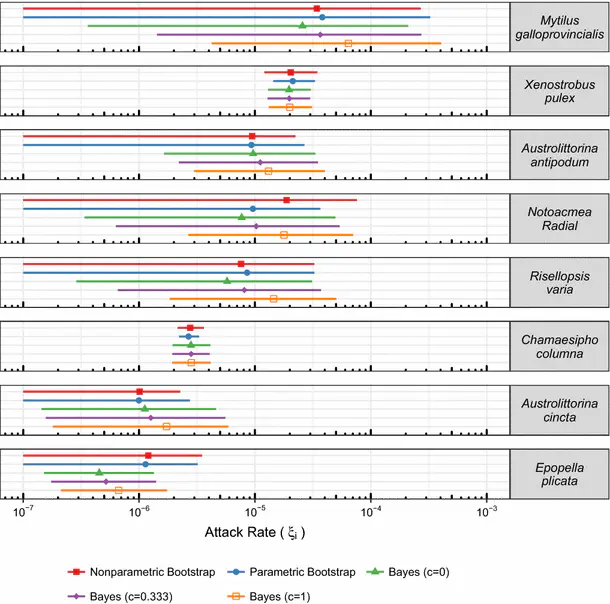Bayesian characterization of uncertainty in species interaction strengths

Abstract
Considerable effort has been devoted to the estimation of species interaction strengths. This effort has focused primarily on statistical significance testing and obtaining point estimates of parameters that contribute to interaction strength magnitudes, leaving the characterization of uncertainty associated with those estimates unconsidered. We consider a means of characterizing the uncertainty of a generalist predator’s interaction strengths by formulating an observational method for estimating a predator’s prey-specific per capita attack rates as a Bayesian statistical model. This formulation permits the explicit incorporation of multiple sources of uncertainty. A key insight is the informative nature of several so-called non-informative priors that have been used in modeling the sparse data typical of predator feeding surveys. We introduce to ecology a new neutral prior and provide evidence for its superior performance. We use a case study to consider the attack rates in a New Zealand intertidal whelk predator, and we illustrate not only that Bayesian point estimates can be made to correspond with those obtained by frequentist approaches, but also that estimation uncertainty as described by 95% intervals is more useful and biologically realistic using the Bayesian method. In particular, unlike in bootstrap confidence intervals, the lower bounds of the Bayesian posterior intervals for attack rates do not include zero when a predator–prey interaction is in fact observed. We conclude that the Bayesian framework provides a straightforward, probabilistic characterization of interaction strength uncertainty, enabling future considerations of both the deterministic and stochastic drivers of interaction strength and their impact on food webs.